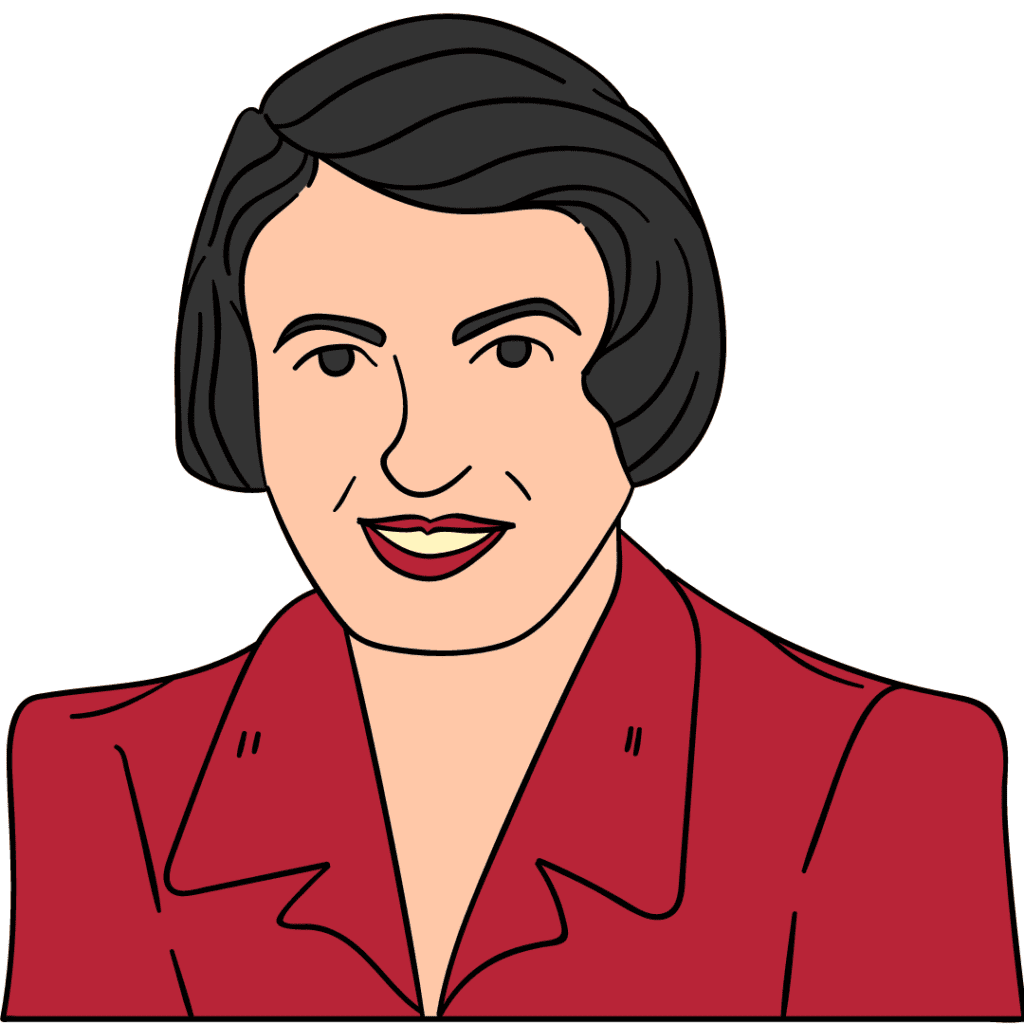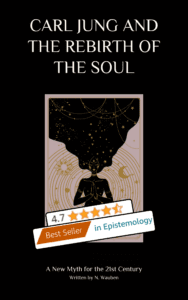Table of Contents
Introduction
Ayn Rand was a rather controversial author. She is most famous for her lengthy novel Atlas Shrugged and her philosophical system called objectivism, which is, in part, presented throughout Atlas Shrugged. Although Atlas Shrugged is an impressive work of fiction, and because of this by many considered to be a ‘must-read’, Ayn Rand’s philosophy is extremely controversial. As a result, it appears as if one can either love or hate Atlas Shrugged, as well as the philosophical ideas presented throughout the book. Recently a famous NFL player was even criticised heavily after indicating that he had Ayn Rand’s book on his bookshelf.
In this article I will summarise the philosophy of Ayn Rand, mostly as presented in Atlas Shrugged. If you have not yet read Atlas Shrugged, then hopefully this article will help you in deciding whether you find it worthwhile to spend your time reading through this lengthy book (1069 pages in my edition). In case you have already read Atlas Shrugged, then I hope that this article will help you to better understand the philosophy of Ayn Rand.
Personally, I found Atlas Shrugged to be an extremely interesting read, even though it took me about 200 pages before I really got into the story. As for Ayn Rand’s philosophy, I can understand why many of her ideas are controversial, however, I personally believe that Ayn Rand presented some interesting ideas which are still valid today. Therefore, even if one were to disagree entirely with Ayn Rand’s philosophy, I believe it is still worthwhile to familiarize oneself with her ideas.
In this article I first present a short summary of Atlas Shrugged (without any spoilers). This short summary is followed by an analysis of some of the most important philosophical ideas of Ayn Rand. At the end, I also shortly address the problems which I personally believe are connected to the philosophy of Ayn Rand.
It most be noted that, although this blog mainly discusses philosophical topics, Ayn Rand’s philosophy cannot be discussed without touching upon certain political or economical themes.
Atlas Shrugged Summary (No Spoilers)
Atlas Shrugged was published in 1957 and it is one of the longest works of fiction ever written. Atlas Shrugged presents a dystopian United States, where society appears to be moving back in time rapidly. Fundamentally, the story portrays a long but, at least initially, unequal battle between two groups of people. On the one hand there is a group of people consisting of hard-working industrialists, inventors and, most notably, a railroad executive. On the other hand, there is a group of people consisting of politicians, scientists, and jealous industrialists, who do whatever they can to undermine the former group of people.
The first group of people are, in essence, trying to expand their businesses and earn a lot of money. The second group of people are, often driven by jealousy, doing whatever they can to compromise the aspirations of the former group. They do so by constantly enacting stricter regulations and directives which have a negative Impact on the industrialists. They claim these rules and regulations are necessary for the greater good of society and argue that it is a moral duty to help the poor.
However, according to Ayn Rand, the second group do not care that much about the poor, they simply hate the rich and use morality as an excuse to defend their destructive policies (Much like Friedrich Nietzsche’s Tarantulas). The rules and regulations continue to get stricter and eventually they seriously undermine the levels of production and innovation of the entire society. Moreover, some of the people of the first group no longer want to partake in such a society and decide to go on a strike, resulting in factories shutting down and negatively impacting society even further.
Ayn Rand’s Philosophy
From this short but far from complete summary, it will most likely already become clear which group of people were favoured by Ayn Rand and which group of people she detested. In short, Ayn Rand believed that the industrialists, innovators, scientists, etc… who aim to earn money and, through their increased production and innovations, benefit society, should be left alone as much as possible.
In essence, Ayn Rand was a strong proponent of capitalism combined with an almost radical form of Laissez-faire. This philosophy consists of several elements, and I will list them below with some quotes from Atlas Shrugged which I believe help illustrate Ayn Rand’s philosophy.

The Importance of Freedom
One of the most importance aspects of Ayn Rand’s philosophy is its focus on individual freedom. Ayn Rand argued that, if an individual were to be completely free, he or she would be able to pursue his or her own desires, which, according to Rand, might benefit society as a whole in the end: “He [Industrialist Hank Rearden] knew only – as from a great, clear distance – that man exists for the achievement of his desires, and he wondered why he stood here, he wondered who had the right to demand that he waste a single irreplaceable hour of his life.” (p.369)
Ayn Rand believed that one of the worst things a government could do, would be to limit the freedom of the individual: “He [Hank Rearden] saw for the first time that he had never known fear because, against any disaster, he had held the omnipotent cure of being able to act. No, he thought, not an assurance of victory – who can ever have that? – only the chance to act, which is all one needs.” (p.202) In Atlas Shrugged, because of a bill passed by the government, industrialists, such as Hank Rearden, were limited in the number of businesses, they could possess. As a result, they became dependent on other, often government-controlled businesses, which were a lot less reliable. Therefore, the productivity of these industrialists declined, which negatively impacted society at large.
Money and Capitalism
Moreover, according to Rand, those that attempt to limit freedom, are often acting in their own self-interest. To do so, they might use many possible excuses, according to Rand, often arguing that they are doing so in order to benefit the poor etc… In fact, however, they are merely jealous of the riches and capabilities of successful people: “It’s the person who would sell his soul for a nickel, who is loudest in proclaiming hatred of money – and he has good reason to hate it. The lovers of money are willing to work for it.” (p.383)
Ayn Rand considered these kinds of people to be plain looters: “Run for your life from any man who tells you that money is evil. That sentence is the leper’s bell of an approaching looter. So long as men live together on earth and need means to deal with one another – their only substitute, if they abandon money, is the muzzle of a gun.” (p.383) Fundamentally, according to Rand, those who hate money are jealous because they do not have the means to acquire it. As a result, they may change the rules in the name of virtue, while, in fact, they are just looting: “Then you will see the rise of the men of the double standard – the men who live by force yet count on those who live by trade to create the value of their looted money – the men who are the hitchhikers of virtue.” (p.383)
According to Rand, however, this entire process can quickly result in a downward spiral, wherein everyone tries to rob everyone: “In a moral society these are the criminals [the looters], and the statutes are written to protect you against them. But when a society establishes criminals-by-right and looters-by-law — men who use force to seize the wealth of disarmed victims – then money becomes its creator’s avenger. Such looters believe it is safe to rob defenceless men once they’ve passed a law to disarm them.” (p.383).
However, as soon as the rules of society have changed, more looters will come, who will equally want their share: “But their loot becomes the magnet for other looters, who get it from them as they got it. Then the race goes, not to be the ablest at production, but to those most ruthless at brutality. When force is the standard, the murderer wins over the pickpocket. And then that society vanishes, in a spread of ruins and laughter.” (p.383) As such, to be successful according to the standards of this kind of society, instead of being productive, one must be almost barbaric, according to Rand.
The Importance of a Strong Purpose
Another important characteristic of Ayn Rand’s philosophy is Rand’s admiration for those who have a strong purpose. Even if one has sufficient freedom and one is living in a society wherein productivity is encouraged, one still requires a purpose to benefit from such a society: “The rising steps of steel and the steps of a being intent upon his goal – this is what they had been, all the men who had lived to invent the lights, the steel, the furnaces, the motors – they were the world, they, not the men who crouched in dark corners, half-begging, half-threatening.” (p.350)
In the dystopian society presented to us in Atlas Shrugged, purpose has been replaced by fear: “I’ve seen the change. They used to rush through here, and it was wonderful to watch, it was the hurry of men who knew where they were going and were eager to get there. Now they’re hurrying because they are afraid. It’s not purpose that drives them, it’s fear. They’re not going anywhere, they’re escaping.” (p.64)
The Role of the Government in Ayn Rand’s Philosophy
Ayn Rand was extremely sceptical when it comes to the role a government has in society. According to Rand, most of the power which the government holds is based upon the government’s mandate to deal with criminals. Therefore, Rand believed that, if a government wants to become more powerful, it should simply create more rules, resulting in more criminals: “There’s no way to rule innocent men. The only power any government has is the power to crack down on criminals. Well, when there aren’t enough criminals, one makes them. One declares so many things to be a crime that it becomes impossible for men to live without breaking laws.” (p.404)
In addition to this, by creating more rules, the power of governments can increase further by using guilt: ““I mean that there is no way to disarm any man,” said Dr. Ferris, “except through guilt. Through that which he himself has accepted as guilt. If a man has ever stolen a dime, you can impose on him the punishment intended for a bank robber and he will take it. He’ll bear any form of misery, he’ll feel that he deserves no better. If there’s not enough guilt in the world, we must create it.” (p.506)
Moreover, Ayn Rand did not agree at all with those individuals, often members of the government, who pertained to be acting in favour of the ‘public good’ while they create laws which result in restrictions imposed upon society: “Who is the public? What does it hold as its good? There was a time when men believed that ‘the good’ was a concept to be defined by a code of moral values and that no man had the right to seek his good through the violation of the rights of another.” (p.442) Ayn Rand even compared these proponents of ‘the public good’ to be almost equal to a burglar, except for the fact that they are desperately seeking for the endorsement of those who they rob: “If it is now believed that my fellow men may sacrifice me in any manner, they please for the sake of whatever they deem to be their own good, if they believe that they may seize my property simply because they need it – well, so does any burglar. There is only this difference: the burglar does not ask me to sanction his act.” (P.442)
Robin Hood
Ayn Rand was a strong opponent of the idea that one individual should be required to give to another individual his or her own hard-earned possession because the other individual needs them more. One of the characters in Atlas Shrugged is fighting this idea:
“The idea that need is a sacred idol requiring human sacrifices – that the need of some men is the knife of a guillotine hanging over others – that all of us must live with our work, our hopes, our plans, our efforts at the mercy of the moment when that knife will descend upon us – and that the extent of our ability is the extent of our danger, so that success will bring our heads down on the block, while failure will gives us the right to pull the cord. This is the horror which Robin Hood immortalized as an ideal of righteousness.” (p.532)
Ayn Rand strongly opposed the idea that Robin Hood was virtues because he stole from the rich and gave to the poor. Instead, Ayn Rand argued that Robin Hood was one of the worst kinds of people, using pity and ‘need’ as his excuse to rob:
“He [Robin Hood] is held to be the first man who assumed a halo of virtue by practicing charity with wealth which he did not own, by giving away goods which he had not produced, by making others pay for the luxury of his pity. […] It is the foulest of creatures – the double-parasite who lives on the sores of the poor and the blood of the rich – whom men have come to regard as a moral idea.” (p.532)
Rand even goes so far as to argue that, as long as we believe Robin Hood to be virtues, we cannot prosper as a society: “Until men learn that of all human symbols, Robin Hood is the most immoral and the most contemptible, there will be no justice on earth and no way for mankind to survive.” (p.533)
The Problems of Ayn Rands Philosophy
As you may have noticed Ayn Rand’s philosophy is quite harsh. Rand appears to entirely lack pity for the poor, which might definitely be justifiable in some cases, however, what about the less fortunate? What about those people that inherently lack the capability to flourish in a capitalist, Laissez-faire, society? They might need a certain kind of Robin Hood, otherwise they might not be able to survive in such a society.
Online one can find many articles presenting long lists of problems, such as this list presented by CBS News of the top 10 reasons why they believe Ayn Rand was wrong. However, many of these reasons are merely based on virtue, and thereby, to a certain extent, prove Ayn Rand’s arguments.
In my opinion there exists, however, one fundamental issue with Ayn Rands philosophy; similar to the CBS article, however, this is also based on morality. I believe Rand has some extremely interesting arguments and I believe it is immensely valuable that Ayn Rand has pointed us to the ‘horror of Robin Hood’. However, I believe that there are definitely people who are in need of assistance, and I personally believe that they should be helped. Ayn Rand does not touch on this issue and, as such, as long as this issue is not properly dealt with, her philosophy cannot be put into practice entirely, in my opinion.
I also do not know how to find a solution for this gap in Ayn Rand’s philosophy. If you do have theory, please let me know in the comments.
Conclusions
By now you will most likely have come to understand why Ayn Rand was such a controversial author and philosopher. Rand was not afraid to condemn ideas which most of our societies consider to be sacred: giving to those in need, making sacrifices for the public good, etc… Even the believe that Robin Hood was a virtues person is not spared by Rand.
Although one might be inclined not to agree entirely with the ideas presented by Ayn Rand, I believe that there is at least on important lesson which we can take away from her philosophy, even if we do not agree with Rand at all: be careful when someone asks you to make sacrifices for the public good. This should not be done because the public good is not an important value, but because those that claim to be acting in favour of the common good might have some selfish motives.
As a I mentioned previously, I believe that Rand was influenced by one of Friedrich Nietzsche’s ideas presented in Thus Spoke Zarathustra. Nietzsche called those who preach for more equality tarantulas because, according to Nietzsche, they are often merely jealous because of their own lack of power: “’Vengeance will we use, and insult, against all who are not like us’ – thus do the tarantula-hearts pledge themselves. ‘And “Will to Equality” – that itself shall henceforth be the name of virtue; and against all that hath power will we raise and outcry!’” (Thus Spoke Zarathustra, p.97) However, as soon as these Tarantulas were to acquire power, they would abuse it even more than those whom they previously deplored: “And when they call themselves ‘the good and just’, forget not that for them to be Pharisees, nothing is lacking but – power!” (p.98)
““Dagny, how did you do it? How did you manage to remain untangled?”
“By holding to just one rule.”
“Which?”
“To place noting – nothing – above the verdict of my own mind.”” (p.816)
Thank you for reading!

